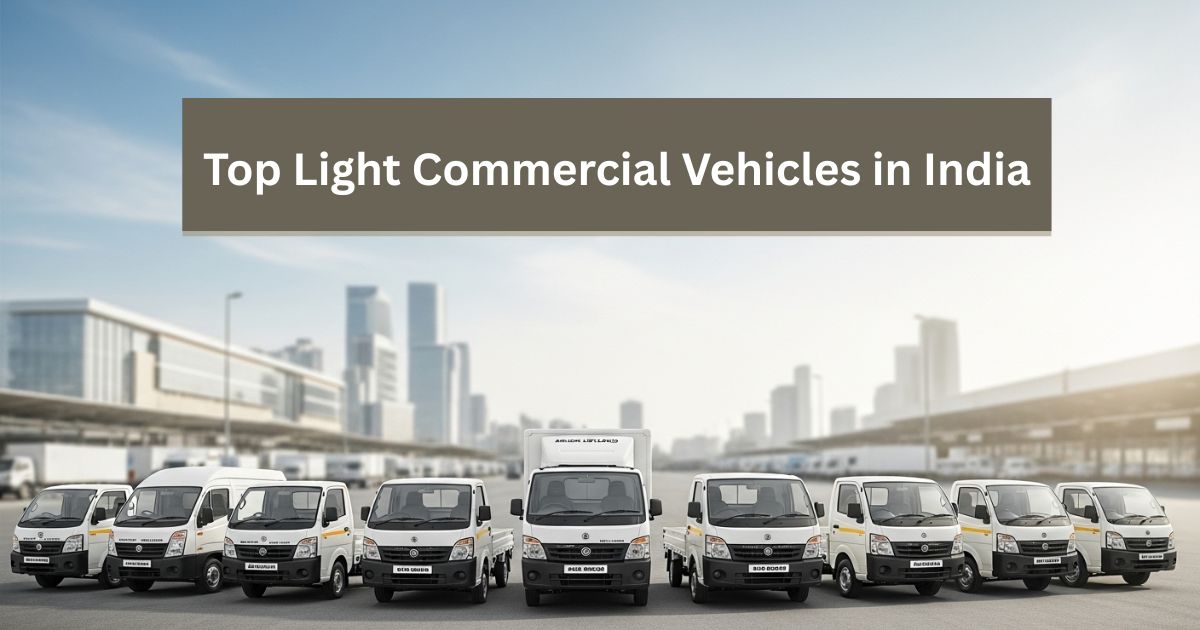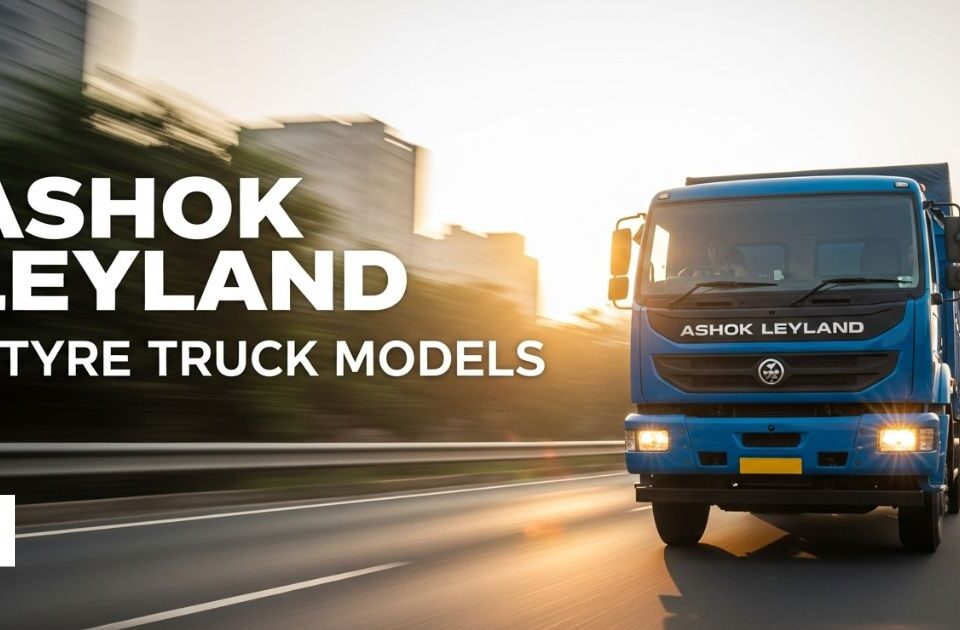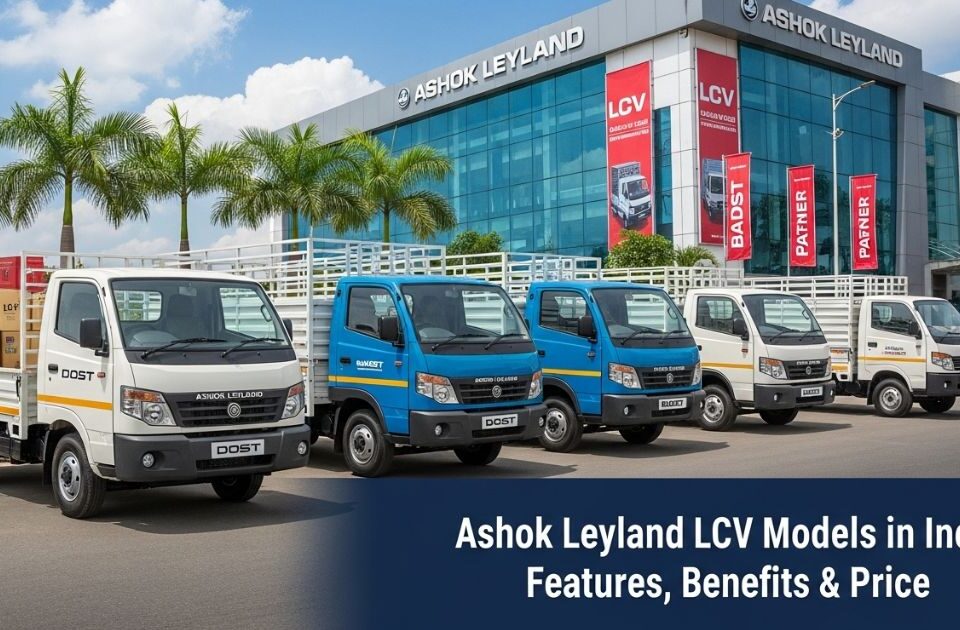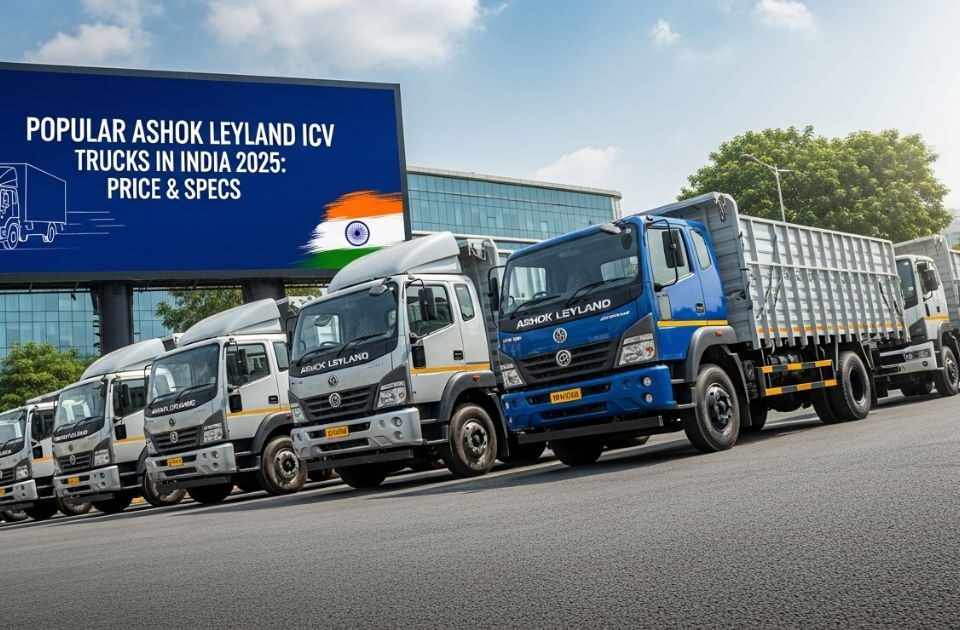
Buy Ashok Leyland Dost CNG – Best Mileage Pickup Truck for Your Business Needs
August 26, 2025
Ashok Leyland Partner: A Reliable Light Commercial Truck for Urban & Rural Roads
September 15, 2025Top Light Commercial Vehicles in India for Business & Transport Needs
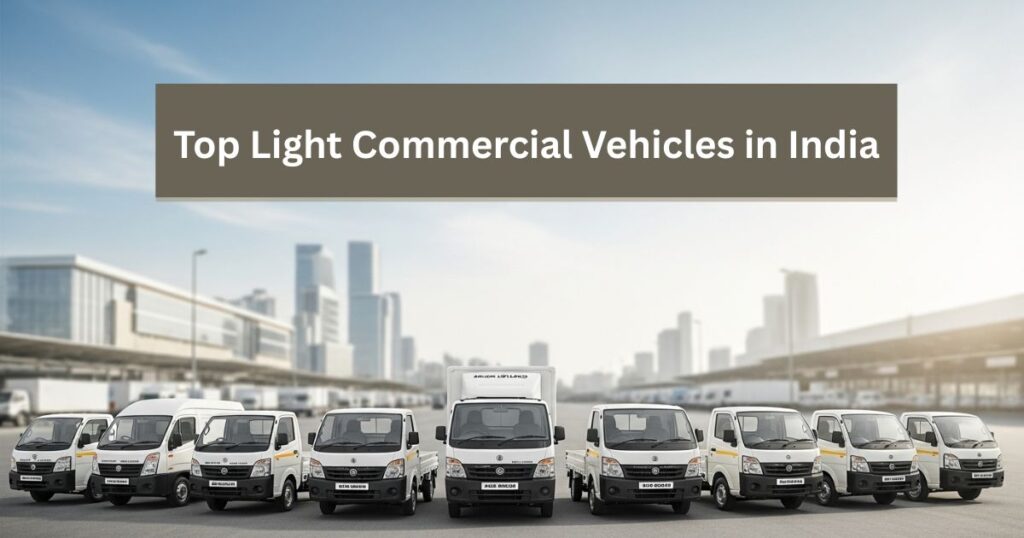
India’s transport and logistics ecosystem is evolving fast. With the booming growth of e-commerce, urban delivery, rural logistics, and small-scale entrepreneurship, the demand for Light Commercial Vehicles (LCVs) has soared across cities, towns, and even remote areas. Whether it’s delivering FMCG products, transporting agricultural goods, or supporting local trades, LCVs play a vital role in ensuring goods move efficiently, affordably, and reliably across the country.
This article takes a closer look at the top-performing light commercial vehicles in India in 2025. It covers their specifications, fuel types, use cases, price range, and why they’re ideal for businesses small and large.
What Are Light Commercial Vehicles (LCVs)?
Light Commercial Vehicles (LCVs) are compact cargo or utility vehicles with a Gross Vehicle Weight (GVW) typically under 7.5 tonnes. Designed for intra-city and short inter-city transport, these vehicles are perfect for businesses needing affordable transport solutions for daily operations.
LCVs include mini trucks, pickup trucks, small commercial vans, and even electric last-mile delivery vehicles. They’re commonly used in e-commerce, retail, agriculture, FMCG, logistics, and construction. Compared to Heavy Commercial Vehicles (HCVs), they’re smaller, more maneuverable, and significantly more fuel-efficient.
These vehicles can be powered by diesel, CNG, or electric powertrains, depending on the model and intended use.
Why Light Commercial Vehicles Are Ideal for Indian Businesses
Light Commercial Vehicles have become essential tools for business owners, traders, delivery operators, and logistics companies. Here’s why:
Cost-Effective Operations: LCVs offer low acquisition and running costs, making them perfect for MSMEs and startups.
Fuel Efficiency: Many models are known for delivering high mileage, with some exceeding 25 km/l, especially in CNG and diesel variants.
Compact Size: Easy to drive and park in congested city areas, narrow lanes, and rural roads.
Versatility: From cargo boxes and refrigerated vans to people carriers and electric three-wheelers, LCVs adapt to multiple business needs.
Low Maintenance: Compared to HCVs, LCVs require fewer repairs and are cheaper to service.
Better ROI: With minimal downtime and efficient fuel usage, the return on investment is often higher for small business owners.
Top Light Commercial Vehicles in India (2025)
Mini Trucks / Pickup Trucks
Tata Ace Gold: Known as the ‘Chhota Hathi’, Tata Ace Gold remains the top choice for last-mile delivery, e-commerce logistics, and grocery supply. With options in diesel, CNG, and petrol, it delivers great mileage and payload capacity.
Mahindra Jeeto: A highly fuel-efficient mini truck, the Mahindra Jeeto is ideal for small vendors, FMCG transporters, and Kirana store deliveries. It offers multiple deck options and engine variants.
Ashok Leyland Dost+: Built for durability and high performance, the Dost+ is suited for construction material delivery, furniture transport, and heavier goods. It comes with a high payload capacity and rugged chassis.
Maruti Suzuki Super Carry: This LCV from Maruti offers petrol and CNG variants, making it ideal for businesses focused on operating cost savings. Its wide cargo deck and durable build make it perfect for daily city logistics.
Piaggio Ape Xtra LDX: An affordable 3-wheeler cargo vehicle, ideal for small-scale transport, especially in rural and semi-urban markets. Known for high mileage and ease of driving.
Cargo Vans / Panel Vans
Force Urbania Cargo: Force Motors’ Urbania is designed for higher cargo volume transport. It’s ideal for B2B logistics, FMCG deliveries, and warehousing operations.
Tata Winger Cargo: Spacious, reliable, and built with Tata’s trusted engine tech. Winger Cargo is commonly used for medicine distribution, institutional deliveries, and sensitive cargo.
Mahindra Supro Van: Used both as a passenger and goods carrier, the Supro Van is a dual-purpose LCV that suits urban distribution and light cargo applications.
Electric Light Commercial Vehicles
Mahindra Treo Zor: An electric 3-wheeler cargo vehicle perfect for eco-conscious businesses and last-mile e-commerce deliveries. Low running costs and zero emissions make it a great urban transport option.
Euler HiLoad EV: Built with high torque and payload capacity, the Euler HiLoad is revolutionizing electric LCV transport. It is ideal for urban logistics and intra-city deliveries.
Subsidies and incentives offered by the Government of India under the FAME II scheme further reduce the cost of electric LCV ownership, making them increasingly viable for small businesses.
Comparison Table of Top LCVs in India (2025)
| Model | Price (₹) | Payload (kg) | Mileage / Range | Fuel Type | Ideal Use Cases |
| Tata Ace Gold | ₹4.5L – ₹6L | 750 kg | 20+ km/l | Diesel/CNG | E-commerce, groceries |
| Mahindra Jeeto | ₹4.3L – ₹5.5L | 700 kg | 25+ km/l | Diesel | FMCG, Kirana deliveries |
| Ashok Leyland Dost+ | ₹7L+ | 1500 kg | 17+ km/l | Diesel | Construction, heavy goods |
| Maruti Super Carry | ₹5L – ₹6.5L | 740 kg | 21+ km/kg (CNG) | Petrol/CNG | City transport, bakery, pharma |
| Piaggio Ape Xtra LDX | ₹3L – ₹4.2L | 500 kg | 30+ km/l | Diesel | Semi-urban/rural small cargo |
| Mahindra Treo Zor EV | ₹3.5L – ₹4L (with subsidy) | 550 kg | 120 km per charge | Electric | Last-mile delivery, urban cargo |
| Euler HiLoad EV | ₹3.8L – ₹4.5L | 688 kg | 150 km per charge | Electric | Intra-city logistics |
How to Choose the Right LCV for Your Business
Selecting the right light commercial vehicle depends on several factors:
- Payload Capacity & GVW – Determine the average load you’ll carry daily. Don’t overpay for excess capacity you don’t use.
- Usage Terrain – Urban deliveries may need compact and easy-to-maneuver models. For rural or rough terrains, pick high ground clearance and sturdy suspension.
- Fuel Type – Diesel offers better torque and load endurance. CNG is cost-effective for shorter daily routes. EVs are ideal for fixed city routes and zero-emission requirements.
- After-Sales Support – Choose brands with a wide dealer and service network in your area.
- Parts & Maintenance – Go for models with readily available parts and low-cost maintenance.
LCV Pricing & Financing Options in India
The price of light commercial vehicles varies based on model, fuel type, and state-level taxes. While ex-showroom prices are widely advertised, the on-road price includes insurance, RTO charges, and accessories.
Most small businesses and transporters rely on EMI-based financing. Banks and NBFCs offer loans up to 90% of the vehicle’s value. Popular government schemes for commercial vehicle finance include:
- PMEGP (Prime Minister’s Employment Generation Programme)
- MUDRA Loans under the MSME category
- FAME II Subsidies for electric LCVs
Leasing is also gaining popularity in the logistics sector. It reduces upfront costs and helps companies upgrade fleets regularly.
Future Trends in the Indian LCV Segment
The future of small commercial vehicles in India is shaped by green technology, digital innovation, and logistics modernization. Here’s what’s coming next:
Electric LCV Boom – With government backing and urban pollution control, more businesses are shifting to electric delivery vehicles.
BS6 and Cleaner Engines – Diesel LCVs now meet BS-VI emission standards, improving fuel efficiency and lowering emissions.
Fleet Digitization – GPS tracking, IoT-based vehicle health monitoring, and digital dashboards are being integrated even in budget LCVs.
Rise in Demand from Tier 2 and 3 Cities – As e-commerce penetration deepens, LCV usage is expanding beyond metros.
Compact Cargo Solutions for Last-Mile Delivery – Businesses are now demanding city transport vehicles that are small in size but high on mileage and payload.
Conclusion
Light Commercial Vehicles continue to be the backbone of India’s business transport ecosystem. From small traders to major logistics companies, the need for reliable, efficient, and budget-friendly transport has never been higher.
Models like the Tata Ace Gold, Mahindra Jeeto, Ashok Leyland Dost+, and electric options like Mahindra Treo Zor are enabling this shift. With a wide variety of options in fuel type, payload, mileage, and use cases, choosing the right LCV can transform business operations for the better.
Before investing, compare key specs, check EMI and subsidy options, and choose a brand that offers strong after-sales support. For those in need of dependable transport for goods, city delivery, or rural supply chains, a light commercial vehicle isn’t just a purchase it’s a growth driver.
FAQs on Light Commercial Vehicles in India
1. What is the difference between LCV and HCV?
LCVs are smaller, with GVW under 7.5 tonnes, ideal for short-range and city deliveries. HCVs are built for bulk transport and heavy industrial use.
2. Which is the best LCV for city deliveries?
Tata Ace Gold, Mahindra Jeeto, and Maruti Super Carry are excellent choices due to compact design and high mileage.
3. Are electric LCVs suitable for long-distance transport?
Currently, most electric LCVs are best for intra-city routes due to limited charging infrastructure and battery range.
4. What is the average mileage of LCVs in India?
Diesel LCVs give around 17–25 km/l, while CNG variants deliver up to 28 km/kg. Electric models provide 100–150 km on a full charge.
5. Which LCV has the best resale value?
Tata Ace, Mahindra Jeeto, and Ashok Leyland Dost+ have strong resale value due to demand and reliability.

